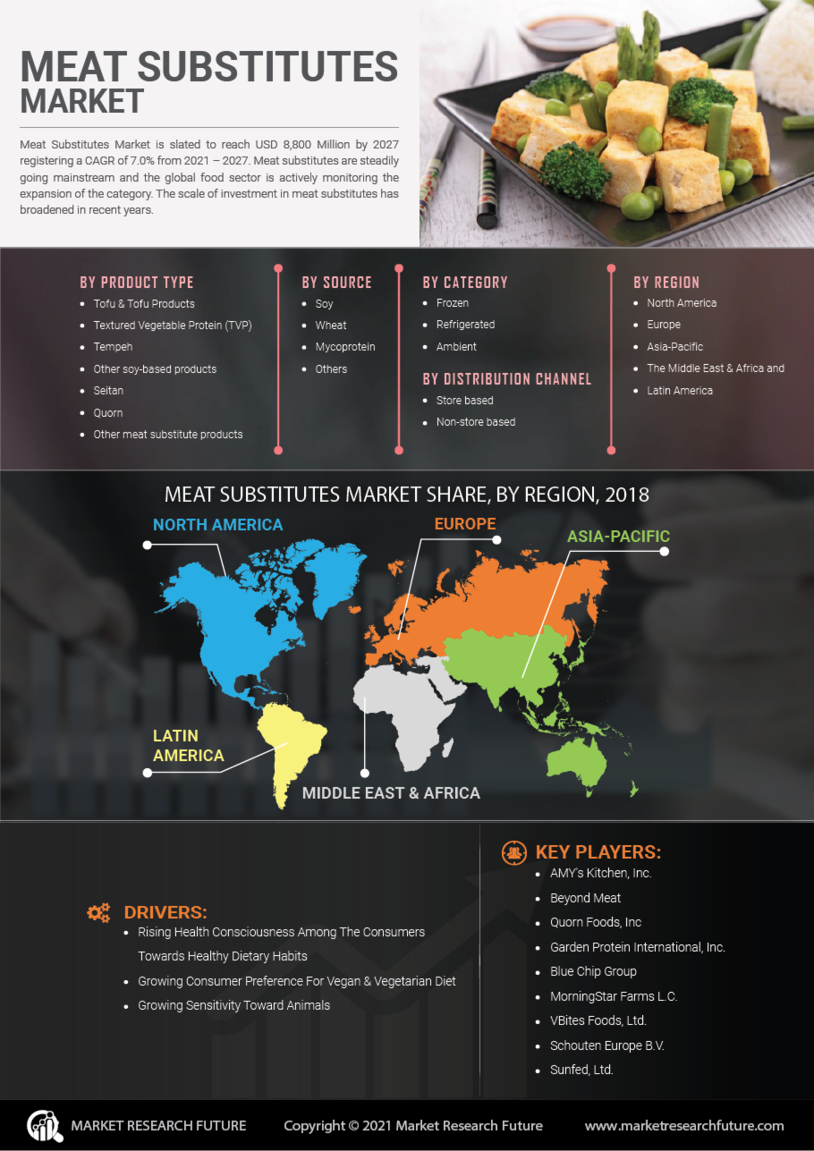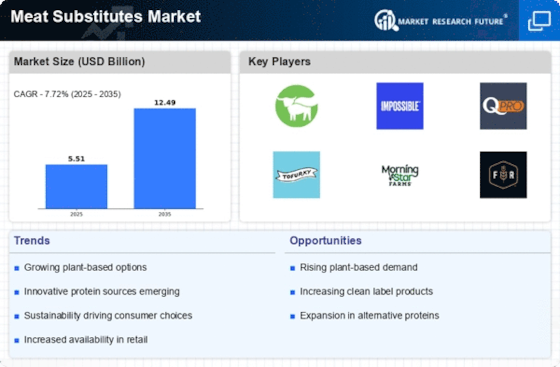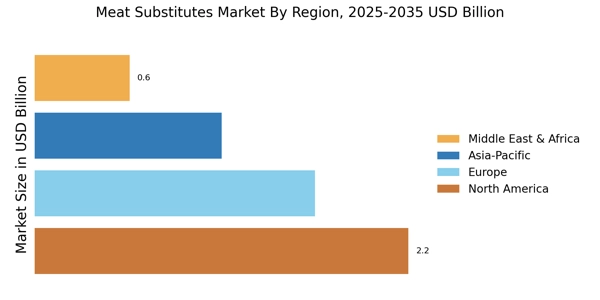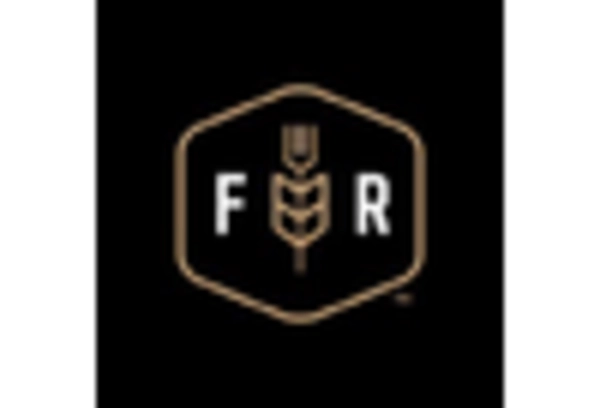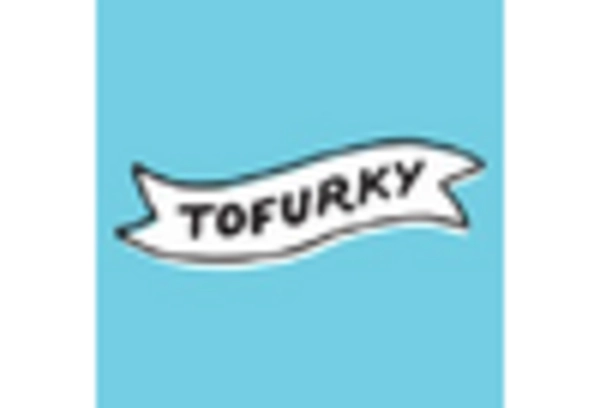Changing Dietary Preferences
The shift in dietary preferences towards plant-based diets is a notable driver in the Meat Substitutes Market. As more individuals adopt vegetarian or flexitarian lifestyles, the demand for meat alternatives is expected to rise. Surveys indicate that a significant percentage of consumers are reducing their meat consumption for health, ethical, or environmental reasons. This trend is reflected in the increasing availability of meat substitutes in retail and foodservice sectors. In 2023, the market for meat substitutes was estimated to account for approximately 10% of the total protein market, suggesting a substantial shift in consumer behavior that is likely to continue influencing the Meat Substitutes Market.
Environmental Sustainability
Concerns regarding environmental sustainability are becoming increasingly prominent, influencing consumer choices in the Meat Substitutes Market. The livestock sector is known to contribute significantly to greenhouse gas emissions, deforestation, and water usage. As consumers become more environmentally conscious, they are likely to gravitate towards meat substitutes that offer a lower ecological footprint. Reports suggest that producing plant-based proteins can use up to 90% less water and generate significantly fewer emissions compared to traditional meat production. This shift towards sustainable eating habits is expected to propel the Meat Substitutes Market, as more individuals seek to align their dietary choices with their environmental values.
Health Benefits of Meat Substitutes
The increasing awareness of health benefits associated with meat substitutes appears to be a driving force in the Meat Substitutes Market. Consumers are increasingly seeking alternatives that are lower in saturated fats and cholesterol, which meat substitutes often provide. Research indicates that plant-based proteins can contribute to improved heart health and reduced risk of chronic diseases. In 2023, the market for meat substitutes was valued at approximately 4.5 billion USD, with projections suggesting a compound annual growth rate of around 15% through 2030. This trend indicates a growing consumer preference for healthier dietary options, which is likely to bolster the Meat Substitutes Market further.
Technological Innovations in Production
Technological advancements in the production of meat substitutes are playing a crucial role in shaping the Meat Substitutes Market. Innovations such as fermentation technology and precision fermentation are enabling the creation of more palatable and nutritious meat alternatives. These technologies not only enhance the taste and texture of meat substitutes but also improve their nutritional profiles. In 2023, the introduction of lab-grown meat alternatives has gained traction, with several companies reporting successful product launches. This innovation is likely to attract a broader consumer base, thereby expanding the Meat Substitutes Market as it offers a viable alternative to traditional meat.
Regulatory Support and Policy Initiatives
Regulatory support and policy initiatives aimed at promoting plant-based diets are emerging as a key driver in the Meat Substitutes Market. Governments in various regions are implementing policies that encourage sustainable food production and consumption. For instance, subsidies for plant-based food production and initiatives to reduce meat consumption are becoming more common. These policies not only support the growth of the meat substitutes sector but also aim to address public health and environmental concerns. As these regulatory frameworks evolve, they are likely to create a more favorable environment for the Meat Substitutes Market, facilitating its expansion and acceptance among consumers.
